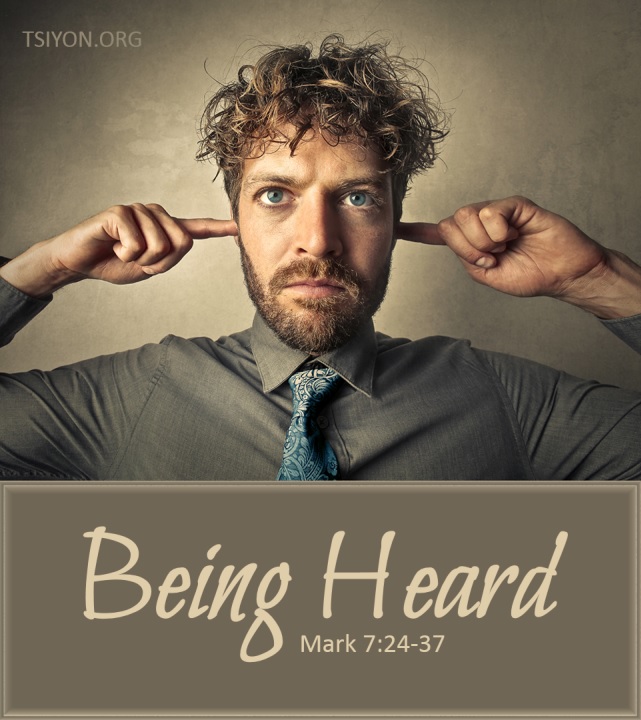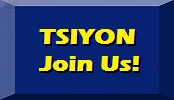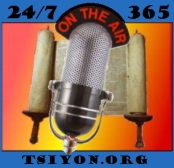Reprint: Wednesday, April 25, 2018 | Israel Today
****************************************
From Eliyahu
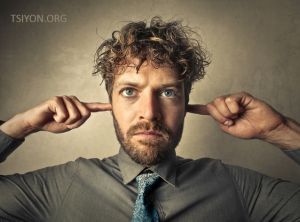 It is great to communicate,
but there is a limit to how much one person can hear in any given moment - I
mean: really hear. Really hearing something involves more than simply
detecting sounds. Really hearing involves thinking about those sounds to
determine what they mean. Hearing and understanding is the essence of one of
life's simple pleasures, the joy of a good conversation.
It is great to communicate,
but there is a limit to how much one person can hear in any given moment - I
mean: really hear. Really hearing something involves more than simply
detecting sounds. Really hearing involves thinking about those sounds to
determine what they mean. Hearing and understanding is the essence of one of
life's simple pleasures, the joy of a good conversation.
However, when too much information is thrown at us at once it can be a very unpleasant experience. That's because we must think to effectively hear, and we can only think of just so much at one time. The human brain is amazing, but is still finite, with limited processing power. Hearing then, involves more that just detecting sounds. Really hearing requires adequate attention to process and comprehend information. Today, there is an unprecedented amount of information being blasted at us constantly. Far more information than any one person could possibly process. We call that "information overload."
 How do you handle information
overload? We usually interpret information overload as confusion, not
knowing what information stream to follow, jumping from one to another and
ending up with a jumbled mess. This triggers a response where we either stop
listening altogether, or narrow our focus to whatever we deem to be most
important to follow. This involves making a judgment in the moment about
what is the most important thing to be listening to and focusing on. Once
that judgment is made, we simply shut out the rest of the information. In
other words, we stop listening by filtering out everything we have now
deemed to be "unimportant."
How do you handle information
overload? We usually interpret information overload as confusion, not
knowing what information stream to follow, jumping from one to another and
ending up with a jumbled mess. This triggers a response where we either stop
listening altogether, or narrow our focus to whatever we deem to be most
important to follow. This involves making a judgment in the moment about
what is the most important thing to be listening to and focusing on. Once
that judgment is made, we simply shut out the rest of the information. In
other words, we stop listening by filtering out everything we have now
deemed to be "unimportant."
That process works pretty well, except when it doesn't. If we filter out important information as unimportant by giving attention to something else, it could have disastrous consequences. Nothing reveals the importance of paying attention to the right information better than what happens when that capacity is missing or impaired.
 Example: texting while driving. Texting
while driving is a very dangerous choice to make. There is a lot of
information your brain must process to drive. Most of this information is
within the scope of the average person to effectively process most of the
time. However, you are going down the road at lethal speed in a field of
vehicles which are also moving at lethal speed. One small miscalculation and
a lethal accident can occur at any given moment. Surely, being a death
defying activity, driving merits one's full attention.
Example: texting while driving. Texting
while driving is a very dangerous choice to make. There is a lot of
information your brain must process to drive. Most of this information is
within the scope of the average person to effectively process most of the
time. However, you are going down the road at lethal speed in a field of
vehicles which are also moving at lethal speed. One small miscalculation and
a lethal accident can occur at any given moment. Surely, being a death
defying activity, driving merits one's full attention.
Texting and Driving Statistics tell the story.
Texting While Driving Causes:
1. 1,600,000 accidents per
year � National Safety Council
2. 330,000 injuries per year � Harvard Center for Risk Analysis Study
3. 11 teen deaths EVERY DAY � Ins. Institute for Hwy Safety Fatality Facts
4. Nearly 25% of ALL car accidents
Texting While Driving Is:
1. About 6 times more likely
to cause an accident than driving intoxicated
2. The same as driving after 4 beers � National Hwy Transportation Safety
Admin.
3. The number one driving distraction reported by teen drivers
Texting While Driving:
1. Makes you 23X more likely
to crash � National Hwy Transportation Safety Admin.
2. Is the same as driving blind for 5 seconds at a time � VA. Tech
Transportation Institute
3. Takes place by 800,000 drivers at any given time across the country
4. Slows your brake reaction speed by 18% � HumanFactors & Ergonomics
Society
5. Leads to a 400% increase with eyes off the road
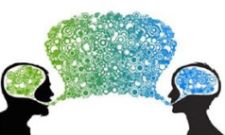 Judging
from these texting-while-driving statistics above, we would have to conclude
that people are focusing on the wrong information a lot of the time. Add to
that the amount of information overload we are all facing, and it is little
wonder that most of us feel that we are not being heard. If you have
something to say, how do you break through the din of competing information
enough to get people to really listen to your important information?
Actually, that is a question I ask and try to answer just about every day.
It isn't easy getting people to listen and really hear when they already
have so many other things that they are focusing on.
Judging
from these texting-while-driving statistics above, we would have to conclude
that people are focusing on the wrong information a lot of the time. Add to
that the amount of information overload we are all facing, and it is little
wonder that most of us feel that we are not being heard. If you have
something to say, how do you break through the din of competing information
enough to get people to really listen to your important information?
Actually, that is a question I ask and try to answer just about every day.
It isn't easy getting people to listen and really hear when they already
have so many other things that they are focusing on.
If its hard for a fully-functional person to get through, imagine what its like for a person who cannot effectively hear or speak. According to the Gallaudet Research Institute 22 out of every 1,000 people have a severe hearing impairment or are deaf. Many deaf people also have some trouble speaking or are unable to effectively voice at all. That amounts to millions of people who are literally not being heard, and whose ability to interact in a normal way in society is functionally limited, or even non-existent, due to their disability. The isolation some of those people experience can be crushing. What happens to those folks?
One such person met Messiah, and the story is recorded in Mark 7. The outcome of that meeting resulted in a happy ending for that Deaf man, and brings hope of being heard to us all. Join us tonight at 8 PM CST at Tsiyon.Net for our online meeting, and hear something important about being heard.
Shalom,
Eliyahu ben
David
Tsiyon.Org
****************************************
Netanyahu Hires an Israeli Jew Who Believes in Yeshua
 Prime Minister Benjamin Netanyahu's office made waves this week when
it hired long-time pro-Israel YouTube activist Hananya Naftali as its
new deputy social media adviser.
Prime Minister Benjamin Netanyahu's office made waves this week when
it hired long-time pro-Israel YouTube activist Hananya Naftali as its
new deputy social media adviser.
Israel Today has featured Naftali's informative video clips a number of times. The material is as solid as it gets.
What makes Naftali "controversial" for many Israelis is his unabashed faith in Yeshua (Jesus).
We avoid calling Naftali a "Messianic Jew" because in a previous video he himself denied belonging to any particular denomination, instead explaining that he's "just a normal guy who made his own decision to follow Jesus."
It is very symbolic of the rising status of Israeli believers in Yeshua that Naftali would be hired by the Prime Minister's Office despite being so open about his faith.
In fact, Netanyahu's social media adviser Topaz Luk said in remarks to The Jerusalem Post that Naftali is a "superstar" who brings a lot to the table when it comes to online pro-Israel advocacy.
****************************************
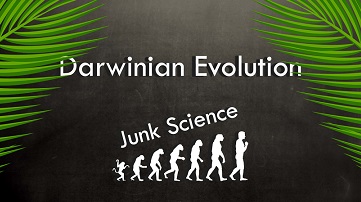 See: Darwinian Evolution Junk Science. This
series is
excellent for every person who has, or may have, someone in their life who
has been influenced by Evolution. When your
friends consider where this idea of Evolution came from, and the misery and death it has
caused, they will be shocked and repulsed by it - and we hope, will want to
know the truth about where we all really came from. Don't miss this
series! It will be available
to all Tsiyon members at Tsiyon.Net, along with other special content, for
a limited time. Sign-up is free, so invite your
friends to view this now, during this introductory showing period.
See: Darwinian Evolution Junk Science. This
series is
excellent for every person who has, or may have, someone in their life who
has been influenced by Evolution. When your
friends consider where this idea of Evolution came from, and the misery and death it has
caused, they will be shocked and repulsed by it - and we hope, will want to
know the truth about where we all really came from. Don't miss this
series! It will be available
to all Tsiyon members at Tsiyon.Net, along with other special content, for
a limited time. Sign-up is free, so invite your
friends to view this now, during this introductory showing period.
****************************************
You can tune in to Tsiyon Road from around the world by using one of the
free apps on you mobile device from
![]() or
or
![]() or
or
![]() ..
..
You can also listen with
![]() or another radio stream outlet, or directly from our
website.
You get a lot for free on Tsiyon Road!
or another radio stream outlet, or directly from our
website.
You get a lot for free on Tsiyon Road!
Need to talk to us? - In the USA and Canada just call us toll free at (888) 230-2440 for help. Internationally, email us and we will arrange a phone or Skype call for you.

